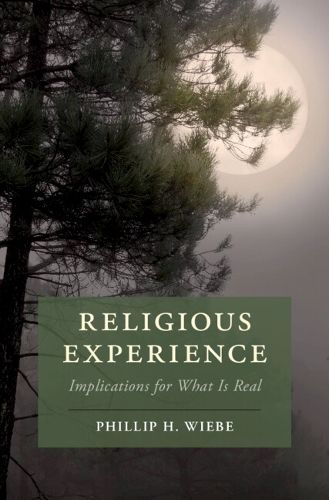Readings Newsletter
Become a Readings Member to make your shopping experience even easier.
Sign in or sign up for free!
You’re not far away from qualifying for FREE standard shipping within Australia
You’ve qualified for FREE standard shipping within Australia
The cart is loading…






In this book, Phillip Wiebe examines religious, spiritual, and mystical experiences, assessing how these experiences appear to implicate a spiritual order. Despite the current prevalence of naturalism and atheism, he argues that experiences purporting to have a religious or spiritual significance deserve close empirical investigation. Wiebe surveys the broad scope of religious experience and considers different types of evidence that might give rise to a belief in phenomena such as spirits, paranormal events, God, and an afterlife. He demonstrates that there are different explanations and interpretations of religious experiences, both because they are typically personal accounts, and they suggest a reality that is often unobservable. Wiebe also addresses how to evaluate evidence for theories that postulate unobservables in general, and a Theory of Spirits in particular. Calling for more rigorous investigation of these phenomena, Wiebe frames the study of religious experience among other accepted social sciences that seek to understand religion.
$9.00 standard shipping within Australia
FREE standard shipping within Australia for orders over $100.00
Express & International shipping calculated at checkout
Stock availability can be subject to change without notice. We recommend calling the shop or contacting our online team to check availability of low stock items. Please see our Shopping Online page for more details.
In this book, Phillip Wiebe examines religious, spiritual, and mystical experiences, assessing how these experiences appear to implicate a spiritual order. Despite the current prevalence of naturalism and atheism, he argues that experiences purporting to have a religious or spiritual significance deserve close empirical investigation. Wiebe surveys the broad scope of religious experience and considers different types of evidence that might give rise to a belief in phenomena such as spirits, paranormal events, God, and an afterlife. He demonstrates that there are different explanations and interpretations of religious experiences, both because they are typically personal accounts, and they suggest a reality that is often unobservable. Wiebe also addresses how to evaluate evidence for theories that postulate unobservables in general, and a Theory of Spirits in particular. Calling for more rigorous investigation of these phenomena, Wiebe frames the study of religious experience among other accepted social sciences that seek to understand religion.